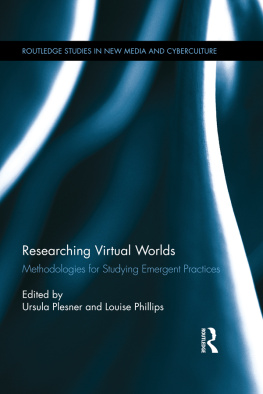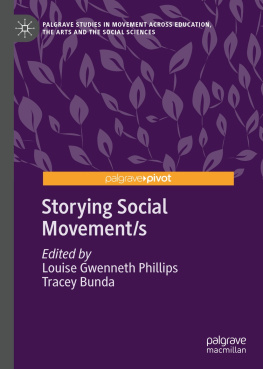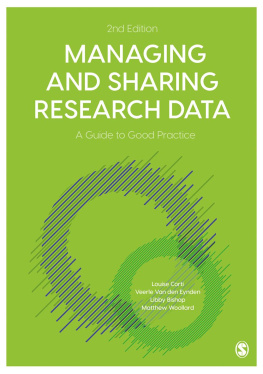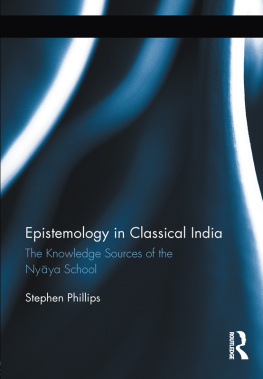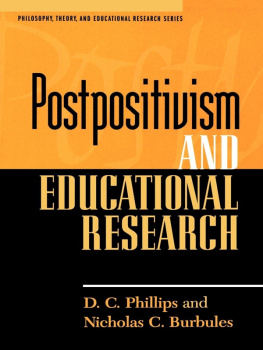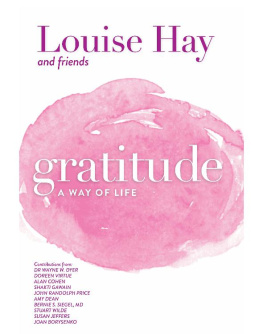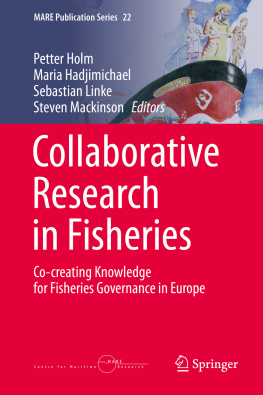Knowledge and Power
in Collaborative ResearchRoutledge Advances in Research Methods
1 E-Research
Transformation in Scholarly Practice
Edited by Nicholas W. Jankowski
2. The Mutual Construction of Statistics and Society
Edited by Ann Rudinow Stnan, Heidi Mork Lomell, and Svein Hammer
3 Multi-Sited Ethnography
Problems and Possibilities in the Translocation of Research Methods
Edited by Simon Coleman and Pauline von Hellermann
4 Research and Social Change
A Relational Constructionist Approach
Sheila McNamee and Dian Marie Hosking
5 Meta-Regression Analysis in Economics and Business
T.D. Stanley and Hristos Doucouliagos
6 Knowledge and Power in Collaborative Research
A Reflexive Approach
Edited by Louise Phillips, Marianne Kristiansen, Marja Vehvilinen and Ewa Gunnarsson
Knowledge and Power in Collaborative Research
A Reflexive Approach
Edited by
Louise Phillips, Marianne Kristiansen, Marja Vehvilinen and Ewa Gunnarsson
First published 2013
by Routledge
711 Third Avenue, New York, NY 10017
Simultaneously published in the UK
by Routledge
2 Park Square, Milton Park, Abingdon, Oxon OX14 4RN
Routledge is an imprint of the Taylor & Francis Group, an informa business
2013 Taylor & Francis
The right of the editors to be identified as the authors of the editorial material, and of the authors for their individual chapters, has been asserted in accordance with sections 77 and 78 of the Copyright, Designs and Patents Act 1988.
All rights reserved. No part of this book may be reprinted or reproduced or utilised in any form or by any electronic, mechanical, or other means, now known or hereafter invented, including photocopying and recording, or in any information storage or retrieval system, without permission in writing from the publishers.
Trademark Notice: Product or corporate names may be trademarks or registered trademarks, and are used only for identification and explanation without intent to infringe.
Library of Congress Cataloging-in-Publication Data
Knowledge and power in collaborative research : a reflexive approach / edited by Louise Phillips ... [et al.].
p. cm. (Routledge advances in research methods ; 6)
Includes bibliographical references and index.
1. ResearchSocial aspects. 2. ResearchMethodology.
3. Communication in science. 4. Participant observation.
5. Research and development projectsSocial aspects. I. Phillips, Louise, 1967
Q180.55.S62K66 202
001.4dc23
2012017549
ISBN: 978-0-415-54024-7 (hbk)
ISBN: 978-0-203-08367-3 (ebk)
Contents
LOUISE PHILLIPS, MARIANNE KRISTIANSEN, MARJA VEHVILINEN AND EWA GUNNARSSON
MAJA HORST
PAULIINA LEHTONEN
KAREN DONS BLDEL
MARJA VEHVILINEN
ULLA-BRITT LILLEAAS
BIRGITTE RAVN OLESEN AND CHRISTINA HEE PEDERSEN
AGNETE NEIDEL AND TRINE WULF-ANDERSEN
LISBETH FRLUNDE
MARIANNE KRISTIANSEN AND JRGEN BLOCH-POULSEN
RIIKKA HOMANEN
URSULA PLESNER
LOUISE PHILLIPS AND MARIANNE KRISTIANSEN
LOUISE PHILLIPS AND MARIANNE KRISTIANSEN
This book is the product of the collaborative work of the NordForsk Network for the Study of the Dialogic Communication of Research co-ordinated by Louise Phillips (20082012). In cross-disciplinary, cross-national fashion, the network brought together researchers from across four dispersed traditions of research (action research, feminist and poststructuralist research, science and technology studies and dialogic communication theory) from different departments in nine universities in Denmark, Finland, Norway and Sweden: the Department of Communication, Business and Information Technologies and the Department of Psychology and Education, Roskilde University; the Department of Organisation, Copenhagen Business School; the Department of Communication and Psychology and the Department of Philosophy and Education, University of Aalborg; the Department of Sociology, University of Copenhagen; the School of Social Sciences and Humanities and the School of Communication, Media and Theatre, University of Tampere; the Faculty of Health and Sport, Agder University College; the Department of Human Work Sciences, Lule University of Technology; the Department of Media and Communication Studies, Karlstad University; and the Centre for Gender Research, Uppsala University.
We would like to thank all members of the network for their active participation and invaluable academic contributions and feedback. We are also grateful to NordForsk for funding the network (project nr. 080149). The book has come about through our participation, as members, in activities organised by the network at Roskilde University, Lule University of Technology and the University of Tampere (see http://dialogue.ruc.dk/). These activities have included several seminars on the topic of the book, a doctoral course, an authors workshop and feedback groups in which members have given ongoing input to the drafts as they have developed. These activities enabled us to bridge the differences between our academic backgrounds and write the book. Together we have walked the talk of collaborative knowledge production and communication. And the steady improvements to our own chapters that we have experienced through the different stages of the collaborative process bear testimony to the transformative power of collaboration across different perspectives.
The case chapters of the book cover a diverse field of empirical contextsfrom the Danish Armed Forces to Finnish NGOs and maternity clinics. We have collaborated with very different partnersfrom Norwegian women suffering from chronic muscular pains to Danish participants in online filmmaking. If these people had not opened their doors to collaboration with us, this book would never have been written. In these different contexts, we met challenges emanating from tensions integral to working across different knowledge interests, but also possibilities of learning with our partners. We are grateful for these opportunities and want to thank all our partners.
In research policy, collaboration is valued and encouraged as part of the dialogic turn in research governance. But at the same time, collaborative forms of knowledge production and communication are routinely given less credit in academic performance measurements. This, we think, points at contradictions in the current mode of research governance, emanating from the articulation of two conflicting discoursesthe discourse of dialogue, participation and empowerment and the discourse of the knowledge economy. The discourse of dialogue, participation and empowerment constructs knowledge production as a collaborative enterprise in which we are encouraged to produce interdisciplinary and practice-relevant knowledge in networks with other researchers and practitioners. Contrastingly, the knowledge economy discourse has strong neoliberal elements, and positions us as individually responsible and accountable with respect to meeting the performance requirements of the knowledge economy.
The contradictions arising from the conflict between these discourses are in play in many ways in our everyday research practices. They are present, for instance, in the crosscutting pressures to collaborate with others across subject areas, departments, universities and countries, on the one hand, and, on the other hand, to compete with colleagues for funding and publish individual articles in top, international, peer-reviewed journals. In the face of the challenges of doing collaborative research under these conditions, we hope that the productive nature of the process of writing this book and the fruitfulness of the research projects that form the cases of the book represent an argument in themselves for collaborative forms of research.



